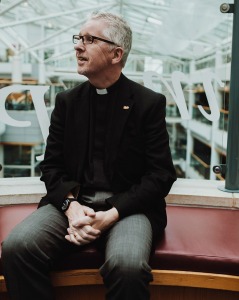01.08.13 – Sheffield Cathedral 12.30 Eucharist
Readings: Exodus 40.16-21, 34-end; Matthew 13.47-53
We find in the gospel accounts Jesus uses various images to convey something about the mystery of God’s kingdom; a kingdom that seems to turn conventional wisdom on its head. The people at the bottom of the pecking order are given the best places at the table; children are set forth as examples to follow; and the outcasts of society spoken more highly of than the religious elite. It is a kingdom in which real power is exercised not through force and domination but in the service of others.
That is not the way of the world where might, if not always seen as right, nevertheless holds sway in the political and economic arenas. The values of the kingdom offer such a radical alternative that it is almost too much to take on board and that, I believe, is one reason for Jesus’ consistent and varied use of parables. They give us different perspectives on life and alternative ways of seeing the world, always affording us fresh insights into the mind of God, an example of which is the parable of the net which was today’s gospel reading.
Jesus describes a net in which all sorts of fish are gathered in. No doubt there would be fish of all shapes and sizes; some edible, some not; some young, some not. When the net is full, the catch is sorted with the good fish saved and the bad thrown out. Jesus then talks about the judgement at the end of the age.
Now while the parable may well be an encouragement for us to live our lives in a way that is consistent with the values of the kingdom, it is also a reminder that people very different to us have no less a share in the kingdom of God. All sorts of people are gathered by God in the same net. The grace and mercy of God are at work in people who we might see as very different to us. It is not for us to determine who is in and who is out.
We do, however, have a responsibility to do all that we can to work with all people of goodwill for the common good. That means being open to engaging with people who are very different fish from us but who are also held within the net of God’s kingdom. The boundaries of God’s love and compassion are always beyond the limited grasp of our own imagination. If we can keep that in mind it will help us to be not surprised, but delighted to recognise how God accomplishes great things so often through the apparently unlikeliest of people, and even through people whom we might not initially have regarded as fellow citizens in the kingdom of God.
